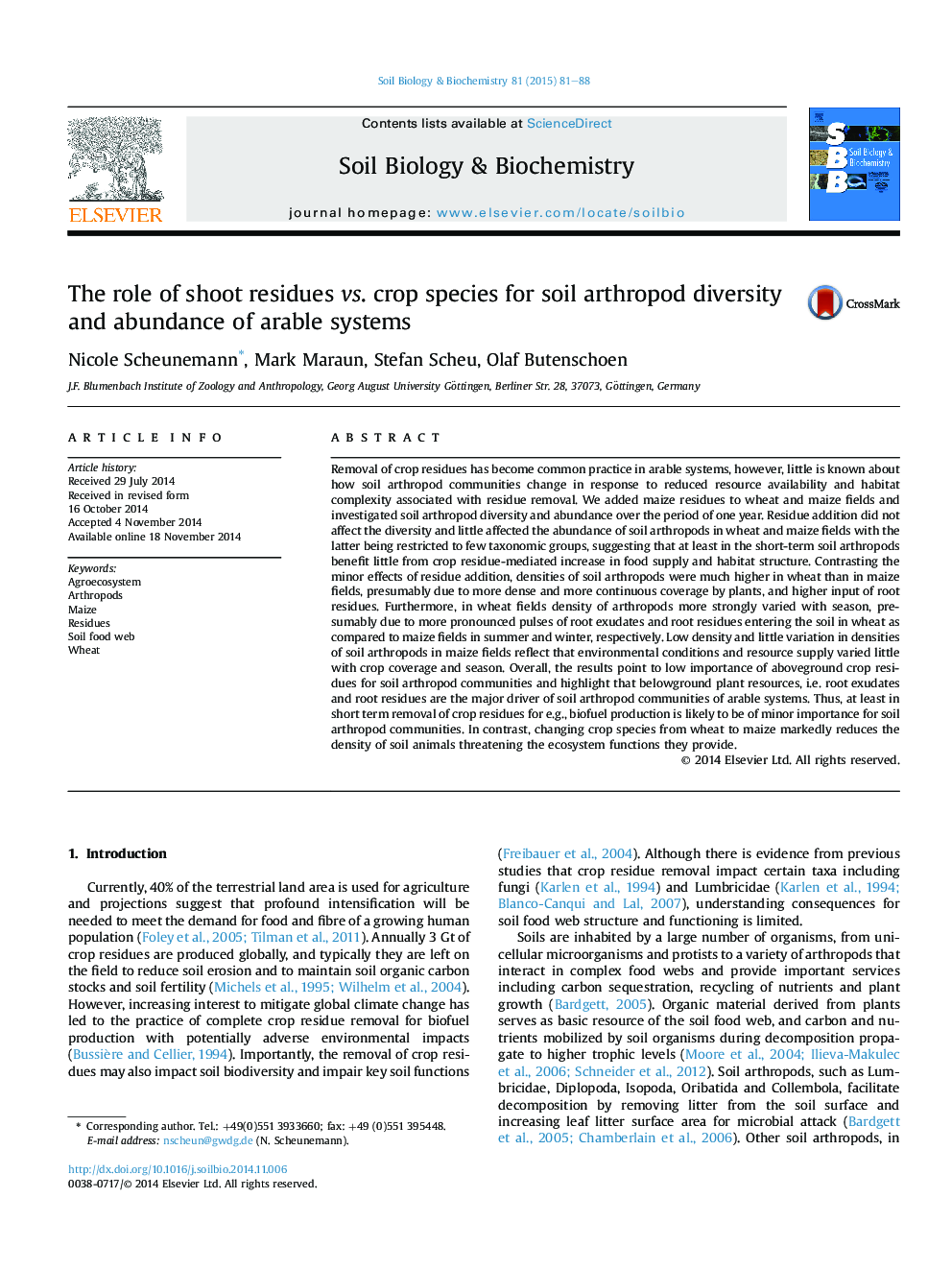| Article ID | Journal | Published Year | Pages | File Type |
|---|---|---|---|---|
| 2024416 | Soil Biology and Biochemistry | 2015 | 8 Pages |
•In arable fields, effects of crop residues on soil animal community were estimated.•Animals did not benefit from increased food supply and habitat structure by residues.•But they benefitted from higher amounts of belowground resources in wheat than maize.•Thus, importance of belowground resources exceeds that of aboveground resources.•Removal of residues for biofuel production has small effect on soil animal community.
Removal of crop residues has become common practice in arable systems, however, little is known about how soil arthropod communities change in response to reduced resource availability and habitat complexity associated with residue removal. We added maize residues to wheat and maize fields and investigated soil arthropod diversity and abundance over the period of one year. Residue addition did not affect the diversity and little affected the abundance of soil arthropods in wheat and maize fields with the latter being restricted to few taxonomic groups, suggesting that at least in the short-term soil arthropods benefit little from crop residue-mediated increase in food supply and habitat structure. Contrasting the minor effects of residue addition, densities of soil arthropods were much higher in wheat than in maize fields, presumably due to more dense and more continuous coverage by plants, and higher input of root residues. Furthermore, in wheat fields density of arthropods more strongly varied with season, presumably due to more pronounced pulses of root exudates and root residues entering the soil in wheat as compared to maize fields in summer and winter, respectively. Low density and little variation in densities of soil arthropods in maize fields reflect that environmental conditions and resource supply varied little with crop coverage and season. Overall, the results point to low importance of aboveground crop residues for soil arthropod communities and highlight that belowground plant resources, i.e. root exudates and root residues are the major driver of soil arthropod communities of arable systems. Thus, at least in short term removal of crop residues for e.g., biofuel production is likely to be of minor importance for soil arthropod communities. In contrast, changing crop species from wheat to maize markedly reduces the density of soil animals threatening the ecosystem functions they provide.
